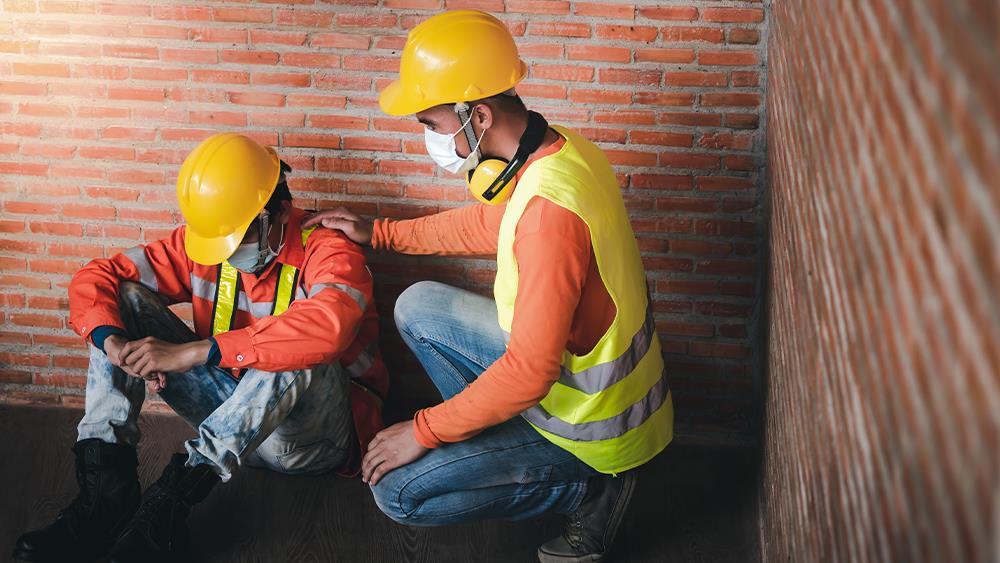The construction sector is one of the most stressful areas, where job exhaustion and poor mental health are prevalent. Each employee is suffering from one of the stressful events at the job site without communicating with others. This is the leading cause of poor worker’s health and increased ratio of suicide in the construction industry.
Mental Health Awareness
The week of October 1–7, 2023, known as Mental Health Awareness Week, will be a turning point for the construction sector. The goal of this week is to end the taboo surrounding mental health problems and reduce the stigma attached to them. It supports open communication and mental health education while fostering an environment where employees may express their worries and share their experiences. It is impossible to overstate how much this week has affected the building sector. It might lead to much-needed reform and open the door to a better working environment.
Understanding Construction’s Problems with Mental Health
It is important to understand the problems with construction workers’ mental health before looking at the remedies. These difficulties are frequently made worse by the particular requirements of the sector:
Stressful Environment
Construction sites are famous for their demanding job. Whether it is a construction labour or an operator of the wheeled excavator for sale, each employee may experience stress and burnout as a result of the ongoing pressure to fulfil deadlines and follow safety procedures.
Physical Demand
Physically demanding jobs are frequently involved in construction work, which can cause weariness and a higher risk of physical accidents. Because of the physical stress, workers may experience chronic discomfort or worry about getting hurt.
Job Insecurity
Job uncertainty during economic downturns can make workers anxious and financially stressed.
Social Isolation
Construction workers frequently spend lengthy stretches away from their homes and families, which causes social isolation and loneliness.
Substance Misuse
High-stress settings and occupational injuries can put construction workers at risk for developing substance misuse problems.
Initiatives To Take by the Company
Construction companies can make a big difference in how their workforce’s mental health issues are carrying out. Some programs that companies can introduce and implement to assist the mental health of their employees.
Identifying the Issue
Identifying the main reason for the stress is the first step. Frequently evaluate the workforce’s mental health issues using surveys and checklists.
Whole-Person treats
companies should treat employee mental health carefully, allowing the connection between it and physical health and well-being.
Regular Check-Ins and Open Discussions
Promoting an atmosphere of open communication is a must. A more understanding and caring working atmosphere is easy to create by frequent check-ins and open discussions regarding mental health.
Employee Assistance Programs (EAPs)
EAPs provide tools and counselling that can help in maintaining open lines of communication. They give workers a private location where they can get assistance when they need it.
Mental Health Days
Introduce “mental health days” that permit employees to take time off, when necessary, without being judged or punished. This motivates workers to put their mental health first.
Safety Protocols for Mental Well-Being
Access to stress management tools and other wellness strategies should be available as part of safety standards for mental well-being.
Assistance from Coworkers
Support from coworkers, in addition to company-led initiatives, is essential for enhancing mental health in the construction sector. Partner systems and peer support networks promote friendship and provide a safety net for individuals in need. These relationships may provide one with a sense of community and lessen feelings of loneliness.
Taking Care of High-Stress Situations
The construction sector is integrally characterized by high-stress situations. There are some strategies to put into practice in order to lessen the negative effects of stress on employees’ mental health:
Stress Management Programs
Companies can help employees deal with the pressures of the workplace by providing stress management programs that include mindfulness exercises, stress reduction methods, and regular breaks.
Easy Access to EAPs
Giving employees access to confidential therapy through employee assistance programs (EAPs) might be helpful. The availability of qualified assistance should be made clear to employees.
Taking Care of Physical Stress
Physical strain, which is a common component of construction jobs, can have an adverse effect on employees’ mental health. As two interrelated sides of employee well-being, safety and mental health initiatives should be the top priority by businesses. strategies consist of:
Regular Medical Exams
Regular health checkups can assist in quickly identifying and addressing physical health issues, lowering the mental stress associated with injuries.
Taking Care of Job Insecurity
In the construction sector, job insecurity is a major concern, particularly during recessions. These are the actions to alleviate employee worries.
Access to Financial Planning Resources
Make financial planning resources available to employees. In uncertain times, this can assist individuals in managing their finances more effectively.
Job Retraining Programs
Provide access to job retraining programs when business is slow to improve employees’ skills and employability.
Clear Communication
Maintain open lines of communication about employment opportunities and business strategies. Uncertainty and worry can be limit down through clarity.
Taking Social Isolation Seriously
Construction workers frequently spend lengthy periods away from their homes and families, which contributes to social isolation. Companies can use the following strategies to combat isolation:
Team-Building Activities
Encourage social relationships among employees by engaging in team-building events. These pursuits promote companionship and a sense of community.
Mentorship Programs
Create mentoring programs so that seasoned employees can assist and support newcomers.
Peer Support Networks
Establish peer support networks so that employees can speak with coworkers who might be going through similar struggles.
Access to Teletherapy
In order to bridge the gap between employees and mental health professionals, especially when employees are on remote job sites, provide access to teletherapy or online counselling services.
Final Verdict
The construction sector must create a favourable atmosphere for the mental health of its workers as it continues to alter the globe. The ongoing battle many people in the sector are going through in silence cannot be overlooked. The construction sector has an excellent opportunity to address these issues fully during Mental Health Awareness Week and on World Mental Health Day. They can play a critical part in ending the stigma and giving the mental health of their workforce the attention, it deserves by acknowledging the issue, taking proactive steps, and developing a culture of support. Together, we can create a construction sector that is stronger and more robust in the future.


Recent Comments